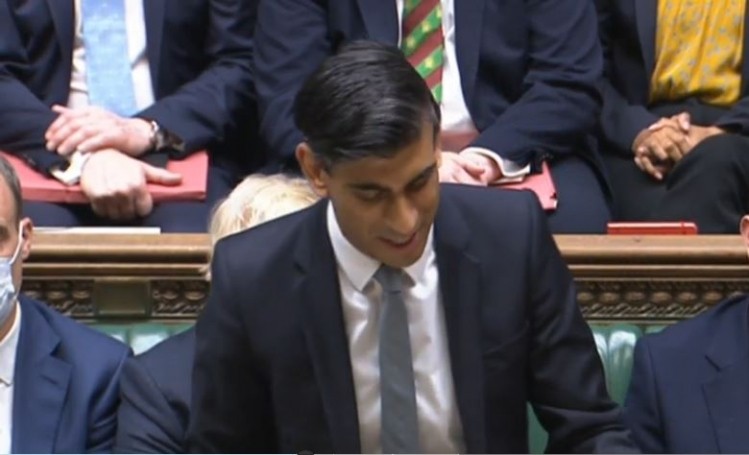Autumn Budget 2021
Autumn Budget overhauls alcohol duty and ups R&D spend - reaction

Reaction
Reaction to the Budget was mixed. Food and Drink Federation (FDF) chief executive Ian Wright warned: "Today’s Budget does little to address the labour shortages which grip the nation. It was also worryingly short on action to tackle rising inflation. Given the pressures they are facing, many manufacturers will simply have no choice but continue to pass costs down the chain."
However, he welcomed the 50% cut in business rates for hospitality, the simplification of alcohol duty and the additional support for R&D, adding: "On the latter we will campaign hard to ensure it is fairly shared out so that it creates step change in how smaller food and drink businesses innovate."
Summing up, he said: “We support the Government’s Plan for Growth - but its success should be judged on whether it delivers the skilled people that we so desperately need."
Public health concerns
The Chartered Institute of Environmental Health (CIEH) raised serious concerns about the UK Government’s commitment to public health as the Chancellor refused to support local authority apprentices.
Dr Phil James, CIEH chief executive, said: “Having worked so closely with the UK Government over the last nine months on their own review of regulatory services and their vital role throughout the pandemic, we are extremely disappointed to see that they have refused to meet one of their own recommendations.
"Environmental and public health professionals played a key role in combatting COVID-19, issuing guidance, supporting test and trace, and helping businesses navigate lockdowns. The decision to neglect supporting apprentices in these important professions raises questions about the Government’s commitment to public health.
It is especially confusing in light of the very limited funding required to meet this commitment and its close alignment with the Government’s own levelling-up agenda.
"We have written to both the new secretary of state for levelling-Up, housing and communities, Michael Gove MP, and the chancellor of the exchequer, Rishi Sunak MP, urging them to show their support for public health across our country and urgently review their approach to public health apprenticeships.”
Business rates
Emma McClarkin, chief executive of the British Beer & Pub Association, said: “Pubs pay 2.5% of business rates despite accounting for only 0.5% of rateable turnover – an overpayment of £570m. Cancelling the rates multiplier and cutting rates for pubs by 50% for one year is a much-needed boost to our sector in its fragile recovery. The multiplier freeze will save English pubs £32m.
“The 50% cut to business rates alone will save pubs £169m. However, the cap of £110,000 per business is a huge dampener and means a significant number of pubs will not benefit from the relief at all.
“The announcement that business rates revaluations will happen more frequently is also welcome, as is the one year improvement allowance. However, we remain concerned that for the longer term the inherent unfairness of the business rates system for pubs has not been addressed."
Beer duty freeze
McClarkin welcomed the decision to freeze beer duty, claiming it would save £177m and secure 9,000 vital jobs across the UK.
She added: “Pub goers will also be toasting the Chancellor today for announcing a 5% lower duty rate on draught beer worth £62m. This is great news for our local pubs and recognises the crucial role they play in our economy and society.
"However, the overall beer duty rate in the UK remains amongst the highest in Europe. It is vital for Britain’s brewers, a world class homegrown manufacturing success story, that the overall beer duty burden is reduced – not just duty on draught beer in pubs.
“Beer is a low-strength product and breweries have invested heavily in developing a range of innovative, exciting and great tasting low and no alcohol beers. We therefore welcome proposals to reduce duty on lower-strength products as part of the proposed modernisation of the alcohol duty regime to better incentivise the consumption of lower-strength drinks.
Scotch Whisky
Chief executive of the Scotch Whisky Association Karen Betts, who is taking over from Ian Wright as FDF chief executive said: “By freezing duty, the Chancellor has given welcome relief to all distillers, specifically in Scotland where 92% of all UK spirits are produced or bottled. It’s confirmation that the UK Government wants to support one of Scotland’s most important industries and will take action to protect jobs, investment and exports, and to bolster the recovery in hospitality and tourism.
“But the UK government must go further if it’s to meet its promise to ensure the tax system is supporting Scotch Whisky. Despite the duty freeze, spirits are still taxed more than beer, wine and cider and we will now want to scrutinise the reform proposals announced by the Chancellor today. At first glance, it appears that Scotch Whisky will continue to be put at a competitive disadvantage against beer and cider through the tax system, rather than being allowed to compete on a level playing field.”
Sunak on alcohol duties
Announcing the full details today (27 October), Sunak delivered what he described as 'the most radical simplification of alcohol duties for over 140 years'.
In addition to scrapping a planned rise in beer, cider, wines and spirits duty, he introduced tiered duty rates meaning producers of drinks containing higher levels of alcohol would pay the highest rates, while those with lower levels would face lower rates. This was designed to address the problem of harmful high-strength products being sold too cheaply.
All tax categories, such as beer and wine, will move to a standardised set of bands, with different rates for products between 1.2-3.4% alcohol by volume (ABV), 3.5-8.4% ABV, 8.5-22% ABV, and above 22% ABV. Above 8.5% ABV, all products across all categories will pay the same rate of duty if they have the same proportion of alcohol content. The government will introduce new rates for low strength drinks below 3.5% ABV.
Changes would take effect from 2023.
Small producer relief
To encourage small craft producers, Sunak introduced a new small producer relief, extending small brewers relief to small cider makers and other producers making alcoholic drinks of less than 8.5% ABV.
Acknowledging that consumption of sparkling wines such as prosecco had increased, with consumption of English sparkling wine increasing tenfold over the past decade, Sunak scrapped the 'irrational' duty premium of 28% levelled on them. "Sparkling wines, wherever they are produced, will now pay the same duty as still wines of equivalent strength," he said.
"And because growing conditions in the UK typically favour lower strength and sparkling wines, this means English and Welsh wines compared with stronger imported wines will now pay less."
He cut duty rates for fruit 'ciders' to bring them in line with apple ciders and perries.
He outlined a new low rate of duty for draught beers and ciders - a 5% reduction, described as the biggest cut to beer duty for 50 years and the biggest cut in cider duty since 1923.
The Government will also simplify the way businesses register and pay for duty, ending the practice where individual products have different administrative rules.
R&D
The Chancellor promised a £20bn investment in R&D by 2024-2025, with further details to be revealed in the Government's forthcoming Levelling Up White Paper.
The Government pledged to fully fund association to EU science programmes including Horizon Europe, enabling further collaboration with European partners. In the event that the UK was unable to associate to Horizon Europe, it said the funding allocated to Horizon association will go to UK government R&D programmes, including those to support new international partnerships.
Significant support for business-driven innovation was outlined, with funding for core Innovate UK programmes increasing to about £1bn a year by 2024-25.
R&D tax reliefs will be expanded to include data and cloud costs with effect from April 2023, to more effectively capture the benefits of R&D funded by the reliefs through refocusing support towards innovation in the UK, and to target abuse and improve compliance.
Other measures
There was good news for retail, hospitality and leisure, with the Government announcing 50% business rate relief for up to 400,000 properties owned by businesses in these sectors.
Vehicle excise duty rates would be frozen for a further year, while the HGV Levy would be suspended for 12 months from August 2022.
The Government also pledged to fulfil its commitment to maintain total farm support in every nation of the UK, worth a cumulative £3.7bn a year. It aims to roll out Environmental Land Management schemes to pay farmers for delivering climate and environmental benefits while producing food and confirmed the £100m investment in the UK Seafood Fund to improve the long-term sustainability of UK fisheries.
A further rise in the National Living Wage of 6.6% to £9.50 an hour was announced in addition to an increased in the National Minimum Wage, effective from 1 April 2022.
National Minimum Wage increases
- 21 to 22 year-olds +9.8% from £8.36 to £9.18 per hour
- 18 to 20 year-olds +4.1% from £6.56 to £6.83 per hour
- 16 to 17 year olds +4.1% from £4.62 to £4.81 per hour
- Apprentices +11.9% from £4.30 to £4.81 per hour















